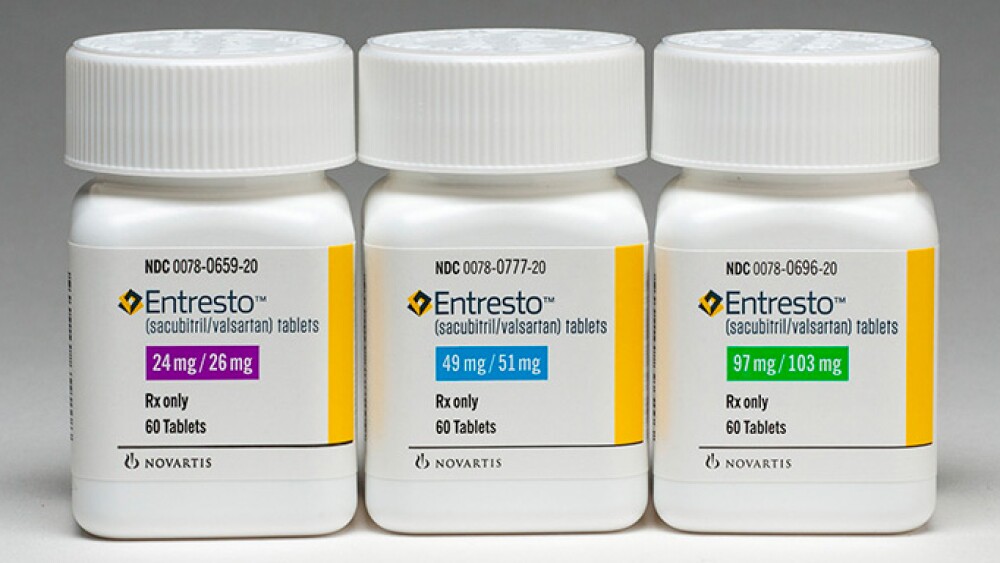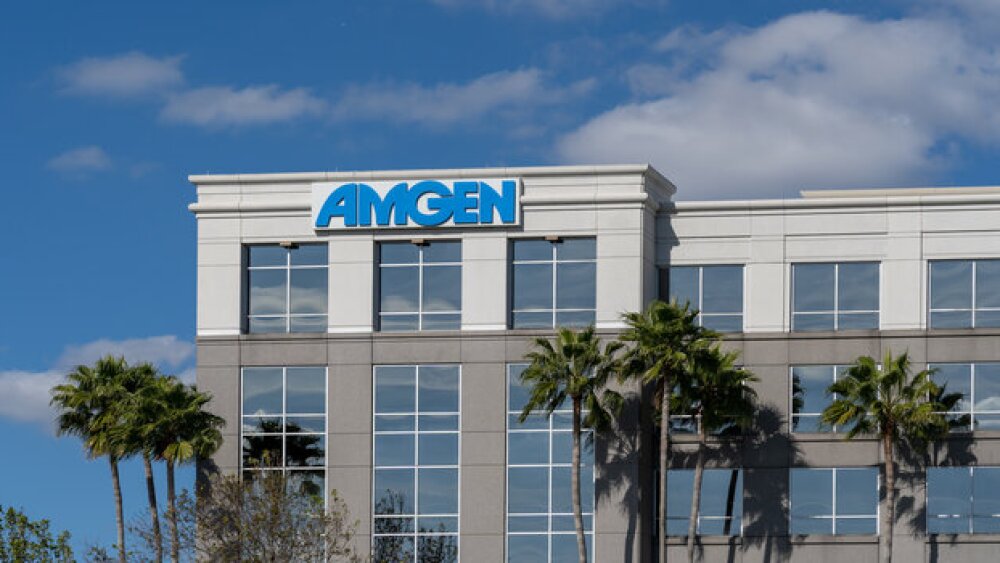July 8, 2015
By Alex Keown, BioSpace.com Breaking News Staff
EAST HANOVER, N.J. – The U.S. Food and Drug Administration (FDA) approved Novartis AG ’ long-awaited new cardiovascular drug Entresto aimed at treating people with chronic heart failure. The drug, which was shown to reduce risk of death and hospitalization by about 20 percent, was approved six weeks ahead of the FDA’s scheduled action date.
The new drug, which has been shown to reduce the rate of cardiovascular death and hospitalization related to heart failure, could be the next big blockbuster for Novartis, as analysts have predicted the treatment could generate billions for the pharmaceutical company.
Thomson Reuters predicts could produce annual sales of $4.4 billion by 2020. Company officials are hoping Ernesto will offset losses from Diovan, the company’s blood pressure medication, which is facing competition from generic medications.
The news sent Novartis’ stock up more than 3 percent in after hours trading, sending the stock to a new high of $102.25 following Tuesday’s close at $99.13 per share.
Norman Stockbridge, director of the FDA’s Division of Cardiovascular and Renal Products, said treatment with Entresto can help people with heart failure live longer and enjoy more active lives.
“There is a great need in the heart failure community for therapies that improve patient outcomes,” Michele Blair, chief executive officer at the Heart Failure Society of America, said in a statement.
Cost Sharing
Novartis said it was working to get the drug to market as quickly as possible. The drug, which will compete with other pills on the market, will be sold for $12.50 per daily dosage, Reuters noted.
Novartis’ head of pharmaceuticals David Epstein told Reuters the company was considering an initial offering the drug at a discounted price to some healthcare systems, but the price would increase if the drug proved to reduce the need for patients to require hospitalization. Heart failure costs exceed $30 billion in the United States, including $21 billion for hospitalization.
Timothy Anderson, a pharmaceutical analyst at Sanford C. Bernstein & Company, told the New York Times that Entresto was likely to become a solid earner for Swiss-based Novartis, but could be slow to yield hefty profits “given the entrenched nature of off-patent ACE inhibitors.”
How it Works
Entresto is a twice-a-day medicine that reduces the strain on the failing heart by enhancing the organ’s protective neurohormonal systems, while simultaneously suppressing the harmful effects of the overactive renin-angiotensin-aldosterone system (RAAS). Entresto contains the neprilysin inhibitor sacubitril, which is a new molecular entity, and the angiotensin receptor blocker (ARB) valsartan.
During clinical trials Entresto was part of the PARADIGM-HF study, which evaluated the efficacy of the drug compared to he ACE Inhibitor enalapril, which is marketed as Vasotec in the U.S. and as Enaladex in other countries. In the study, Entresto was shown to reduce risk of cardiovascular death or heart failure hospitalization by 20 percent over enalapril, an ACE inhibitor over a 27 month period.
Entresto also improved overall survival by 16 percent versus enalapril, driven by the lower incidence of cardiovascular death. The data was strong enough the trial was ended early.
The most common side effects patients taking Entresto experienced were low blood pressure, high potassium, cough, dizziness, and kidney problems, the FDA noted.Heart Failure
Heart failure occurs when the heart cannot pump enough blood to meet the body’s needs and impacts about 5.1 million people in the United States and more than 25 million worldwide. The disease generally worsens over time. The leading causes of heart failure include strokes and heart attacks.
Approximately 2.2 million of these patients have heart failure classified as NYHA II-IV, based on how much their symptoms limit physical activity, which would make them ideal candidates for Entresto.
Regulatory Approval
Entresto was reviewed under the FDA’s priority review program, which provides for expedited review of drugs that are intended to treat a serious disease or condition and may provide a significant improvement over available therapy, the FDA said in a statement.
It was also granted fast track designation, which supports the FDA’s efforts to facilitate the development and expedite the review of drugs to treat serious or life-threatening conditions and fill an unmet medical need.
Milton Packer, chair for the Department of Clinical Sciences at University of Texas Southwestern Medical Center, said Entresto is “expected to change the management of patients with HFrEF for years to come.”
The road to regulatory approval was not without a few bumps. In late January a study in the European Heart Journal suggested the neprilysin used positively for hear treatment, plays a negative role in degrading the beta amyloid plaques linked to Alzheimer’s disease.
The researchers did say they were uncertain if LCZ696, which was the earlier name of Entresto, could pass the brain barrier. Additionally, the second key ingredient of LCZ696, valsartan, an angiotensin-receptor blocker, may have some Alzheimer’s preventive properties due to its vasoprotective properties.
As New Jersey Biotech Booms, Will It Overtake Other States As Prime Location?
A week after Celgene Corporation announced it is officially the mystery buyer of Merck & Co. ’s former 1 million-square-foot R&D site in Summit, N.J., it quickly became our most popular story last week.
The company announced last Wednesday that it is buying the space, ending months of speculation about what Big Pharma company might move into the neighborhood.
The Summit, N.J. site is zoned research/office. The New Jersey site would put operations closer to some of the major biotech and pharmaceutical hubs on the East Coast.
But, by far, the most tempting part of doing business in the state remains New Jersey’s operating tax credit, which allows companies to sell their net operating losses to the New Jersey Treasury. One of the state’s most recognizable biotechs, Celgene, used the program until it became profitable, which was key to it staying in the state, said local officials.
That has BioSpace is wondering if New Jersey is becoming the new face of biotech. What do you think? Can the Garden State compete with other longtime stalwarts like California or Boston?





